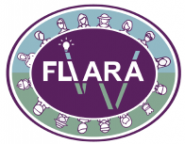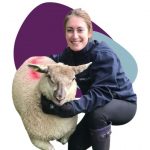Nestled in the rugged hills of Icod de los Vinos in northern Tenerife, Spain, a quiet revolution is unfolding—one led not with banners or slogans, but with beeswax and resilience. Natalia Díaz, biologist and ecological beekeeper, is the woman behind Ecoalpispa and La Abejera, two intertwined ventures that are redefining rural innovation, one eco-wrapping at a time.
Since founding Ecoalpispa in 2017, Natalia has turned a simple idea—reusable beeswax food wraps—into a powerful symbol of sustainable living. But her vision didn’t stop there. In 2020, she launched La Abejera, a unique space for eco-agrotourism and environmental education powered entirely by renewable energy. Here, among fragrant wildflowers and the gentle hum of bees, visitors discover not only the crucial role of pollinators but also the fragile beauty of rural life.
“I couldn’t find a way to care for my territory that truly reflected my values,” Natalia explains. “So I created one. Ecoalpispa is not just a job for me—it’s part of who I am.”
Driven by a passion for nature and a fierce commitment to sustainability, Natalia has quietly taught nearly 5,000 children and countless adults about bees, biodiversity, and the dangers of plastic pollution. Her eco-wraps, made from organic cotton and beeswax from her own hives, offer a local alternative to cling film—and a practical step toward reducing ocean-bound waste. Today, they’re sold in 29 locations across the Canary Islands and even on the Spanish mainland.
Yet behind the achievements lies a trail of challenges. “It’s incredibly difficult for small rural projects to see their own impact, especially when we’re up against an overwhelming global system,” she says candidly. “Bureaucracy is exhausting. The administration often doesn’t understand how rural life works—we operate on nature’s rhythms, not office hours.”
Island-specific struggles also weigh heavily: the dominance of imported goods, rising costs, and most heartbreakingly, the alarming decline of bees. “In 2024, I harvested no honey. The bees just died. And the support we get? Mostly marketing campaigns—not real solutions.”
Still, Natalia carries on, fuelled by the quiet power of purpose. “Passion and persistence—that’s what keeps me going. I believe in what I’m doing. This is my personal mission, not just a professional one.”
That unwavering belief is what made her work stand out to FLIARA, a European project spotlighting women-led innovation in farming and rural areas. For Natalia, FLIARA offers more than recognition—it offers a megaphone. “I hope it becomes a loudspeaker for all of us rural women. We’ve been doing the work, but no one’s been listening. Now, maybe they will.”
And her message for women aspiring to follow a similar path? “If you feel it inside, do it. It’s not an easy road, but it’s one of deep self-discovery—about yourself, your community, and your role in the world. If you’re passionate, that will carry you.”
Looking ahead, Natalia dreams of a rural future led by women—rooted in sustainability, solidarity, and small, meaningful revolutions. “I truly believe the future belongs to rural women,” she says, eyes gleaming with hope. “And if we keep pushing forward, together, we will change the world.”



